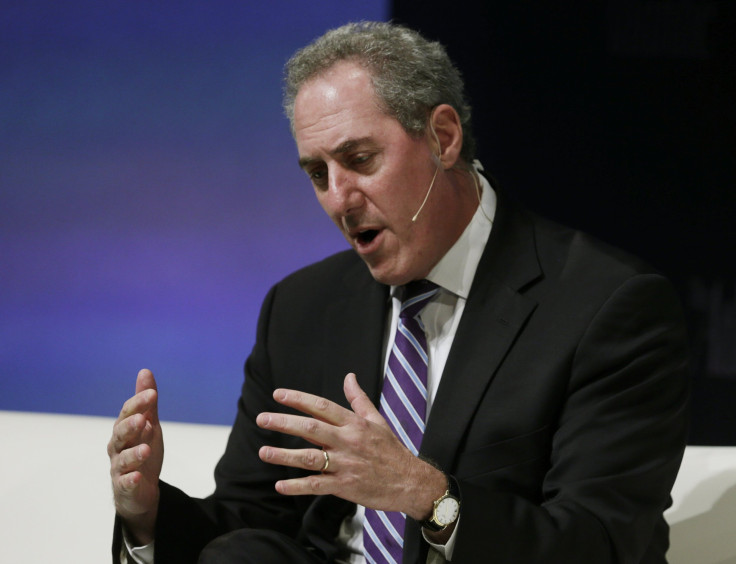US, China Tariff Deal Could Add Thousands Of New Tech-Industry Jobs

Global technology companies are expected to experience a massive revenue windfall over the next decade thanks to a pact between the United States and China that updates and expands a key multilateral trade agreement. The deal, years in the making, is expected not only to add $190 billion to the global GDP but also create tens of thousands of American jobs while boosting innovation.
Tech executives have long called on political leaders to update the 1997 Information Technology Agreement, which aims to eliminate tariffs on high-tech consumer goods and components. The new agreement would eliminate over the next seven years a number of tariffs on imported or exported tech products, including medical equipment, semiconductors, GPS devices, computer software and even video game consoles.
The plan, announced Tuesday by President Barack Obama, must be approved by all the ITA member countries at meetings in Geneva.
It has already been met with wide acclaim from technology groups that have long complained that the ITA needed to move beyond outdated products like floppy disks, for example, to cover newer offerings like the Xbox and advanced cell phone technology. Difficult negotiations between the U.S. and China delayed the update for years.
“We were waiting for this since the discussion between China and the U.S. stopped last November,” a spokesman for the Japan Electronics and Information Technology Industries Association, a group that includes Sony, Panasonic, Toshiba and some 250 others, told the Wall Street Journal. “If the discussion reopens in Geneva and the tariff elimination is expanded, it would be a positive step.”
The 78 members of the ITA are responsible for 97 percent of the world’s IT exports, with tech-centric economies like Japan, Taiwan and elsewhere sometimes hampered by tariffs that go well into the double digits, depending on the product. U.S. estimates indicate the new agreement could unleash $1 trillion in trade, according to the Journal.
Tariff elimination is expected to spur massive growth in the videogame industry, which relies on software and payment methods that would have been unthought-of in 1997. Depending on the country, manufacturers trying to sell consoles might currently be met with a tax of up to 30 percent.
Sony, Apple and Microsoft have also sought to remove tariffs on printed gift cards, which customers purchase in exchange for online gaming perks.
The ITA’s expansion has been portrayed as a major victory for Obama, as the U.S. has long sought to convince Beijing to open up China's markets to the world. Experts have admitted particular surprise with China’s willingness to reduce the tariff on semiconductors, a prized industry, from 25 percent to zero. That change is expected to be of huge benefit to Intel and Qualcomm, which rely heavily on Chinese business.
The American workforce is also expected to grow thanks to the sheer number of products affected under terms of the deal. Companies that manufacture computer and printer equipment - - including Hewlett-Packard, Dell and Cisco - - might now be able to afford to hire more employees because of reduced international costs.
U.S. Trade Representative Michael Froman said in a statement from Beijing after the ITA deal was announced that it could “support” 60,000 new U.S. jobs.
“We already export over $2 billion of high-tech, high-end semiconductors, even with 25 percent tariffs,” he said. “Eliminating those tariffs will obviously expand that trade significantly. It’s an area where we have a comparative advantage, and where we can support a lot of good, well-paying American jobs,” Froman said.
© Copyright IBTimes 2024. All rights reserved.





















